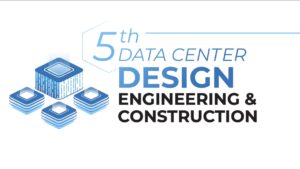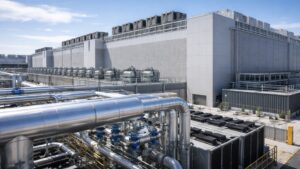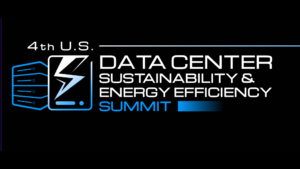The electric vehicle space is booming and shows no signs of slowing down over the next decade. This has made automakers and cell manufacturers focus on undertaking gigafactory construction projects. These gigafactories show dedicated, large-scale manufacturing. Moreover, these are just designed to make lithium-ion batteries and packs to power electric vehicles.
However, making these complex facilities requires a close partnership. This is between original equipment manufacturers, vendors, contractors, and engineering, procurement, and construction management partners. It helps to make use of the expertise in accelerating the timeline and streamlining the approach. This article provides a comprehensive overview of how strategic end-to-end EPCM in gigafactory design and construction is indispensable. So, let’s dive in.
What Does EPCM Mean In Construction And Design?
EPCM in gigafactory design and construction is a combined suite of services, It spans engineering design, sourcing of equipment and materials, management of on-site construction contractors, and overall project execution. Furthermore, the engagement of an expert EPCM partner gives way to EV battery manufacturers and automakers OEMs to construct complex megaprojects efficiently.
The EPCM partner serves as an extension of the OEM team. They have end-to-end responsibility across the gigafactory project lifecycle. Furthermore, their oversight aims to accelerate overall timelines. This is through structured processes, optimizing costs through design and procurement strategies, ensuring stringent quality standards through robust planning and controls, and enabling seamless collaboration between the OEM, vendors, and contractors from start to finish. So, this provides the OEM with a convenient single point of accountability for the entire project.
Now let us examine the role and responsibilities of EPCM partners across each phase of gigafactory development and construction in detail:
Gigafactory Conceptual Design and Optimization
The EPCM partner leads conceptual design and engineering for the gigafactory working closely with the OEM’s project team. So, their focus is on design optimization and engineering for constructability. It minimizes issues during the construction process downstream. Let us see the work of EPCM in design and optimization:
Virtual Modeling and Simulation
Creating a digital twin model of the conceptual gigafactory allows the EPCM partner to simulate and optimize the facility design proactively. As a result, this enables early detection of clashes. This is between structural, MEP, and process components in the 3D model before physical construction begins. Virtual design reviews also allow collaborative decision-making on layout options between the OEM team and the EPCM partner. So, the digital twin model is continuously updated as the design evolves to assess constructability.
Design Modularization
Developing equipment skids, production cells, and other subsystems as modular components allow the EPCM partner to standardize designs that can be prefabricated offsite for simplified installation. So, this facilitates rapid on-site integration of pre-built modules during construction. Modularity also enhances flexibility for future capacity expansions. Furthermore, the modules are designed for easy interconnection while retaining standardization.
Vendor Collaboration
Involving equipment partners early on allows the EPCM in gigafactory design and construction consultants to collaborate on design considerations. This is based on machine footprints, utility connections, control interfaces, and maintenance access requirements. As a result, this prevents potential rework from late-stage design changes. Moreover, vendors are engaged iteratively as the layout design progresses.
Lean Manufacturing Principles
Incorporating lean principles into layout design allows the EPCM partner to optimize floor space utilization. It also helps to eliminate redundant steps and ensure flexibility for future expansion. So, this enhances productivity and throughput. Furthermore, the principles are applied through detailed analysis of workflow and waste reduction.
Constructability Analysis
Undertaking exhaustive construction feasibility analysis on proposed structural systems, equipment installations, and MEP designs allows the EPCM in gigafactory design and construction consultant to flag complexities early. This helps to modify designs for simpler field execution during construction. Moreover, it reduces manhours and equipment needs onsite.
Logistics Optimization
Designing specialized material handling systems like conveyors, cranes, and loading bays tailored for gigafactory parts and commodities allows the EPCM partner to model material flows. It also helps to optimize warehouse locations, staging areas, and equipment capacities. As a result, this minimizes double handling and wait times.
Sustainability Integration
Incorporating on-site renewable energy systems, closed-loop water recycling, rooftop PV panels, and other features into the design allows the EPCM consultant to deliver a gigafactory with net-zero environmental impact during operations. So, sustainability is a key priority during conceptualization.
The extensive focus on design optimization and engineering for manufacturability provides the blueprint. This is for streamlined gigafactory construction further down the project timeline. These are some of the roles and responsibilities of EPCM partners under design.
Strategic Sourcing and Procurement
The EPCM in gigafactory design and construction partner after the post-design finalization takes equipment sourcing, workforce planning, and material procurement into its charge. It also helps to acquire the inventory that is required for the gigafactory construction as the project schedule demands. So, let us go deeper into its sourcing and procurement:
Standardization Analysis
Maximizing the repetition of standard parts and materials across the design allows the EPCM partner to enable bulk sourcing at scale for cost benefits. Furthermore, custom non-standard items become less through design standardization efforts. Moreover, common modules make use across multiple production line builds.
Global RFQ Management
Floating international RFQs to qualified vendors across relevant geographies and managing the bidding process allows the EPCM consultant to source critical equipment. This is at optimal value based on the total landed cost. Duties, taxes, and freight are also key considerations.
Localized Sourcing
Preferring local vendors and sub-contractors wherever possible allows the EPCM in gigafactory design and construction partner to prevent shipping delays. This is especially for bulk materials supply like structural steel, concrete, etc. Moreover, logistics costs and lead time optimization are done.
Vendor Qualification
A thorough assessment of supplier qualifications, capabilities, quality systems, and financials before the placement of orders allows the EPCM consultant to mitigate risks. This is especially true for long-lead specialty equipment. So, key aspects like solvency, quality certifications, and production capacities go through evaluation.
Strategic Ordering
Planned procurement aligned with project schedules ensures the timely availability of materials on-site as needed. It also minimizes inventory costs through just-in-time delivery coordinated by the EPCM partner. Moreover, buffer stock level optimization takes place based on lead times.
Supply Chain Visibility
Leveraging digital tools provides the EPCM partner with real-time visibility into order fulfillment status. This is across the supply chain network spanning multiple geographies and thousands of line items. Performance metrics also go through monitoring.
Logistics Optimization
Planning optimized shipping routes and carriers allows the EPCM in gigafactory design and construction partners to achieve cost efficiency. It comes in moving equipment and materials to the project site. They also coordinate incoming material handling. It includes unloading, inspection, storage, and internal transfer.
Extensive planning and procurement management are crucial. It helps in ensuring the availability of structural components. It also ensures the availability of MEP equipment, distribution pipelines, process modules, automation systems, and all other parts. These are a requirement for installation and assembly as per the construction roadmap.
Construction Project Management and Control
During gigafactory construction, the EPCM partner establishes structured processes and implements digital tools to execute and monitor on-site activity. So, let us dive into its role in project management and control:
Project Schedule Optimization
Developing comprehensive construction plans and schedules in collaboration with contractors allows the EPCM partner to optimize activity sequencing. It also helps to optimize crew sizing, resource allocation, etc. for on-time delivery. Moreover, detailed WBS and project network diagrams go through development.
Short Interval Planning
Enabling regular short-interval schedule reviews at the master, phase, and trade levels allows the EPCM in gigafactory design and construction consultants to drive proactive issue resolution. This is through re-sequencing, re-allocation, or mitigation plans. Moreover, variances in baseline plans go through an assessment.
Quality Management
Executing stringent quality control and inspection protocols as per company standards and industry best practices allows the EPCM partner to leverage principles. It includes Six Sigma and Lean to minimize defects and avoid rework. Quality KPIs tracking is also there.
Safety Management
Instituting robust safety management encompassing job hazard analysis, safety training, token systems, metrics monitoring, and protocol enforcement allows the EPCM consultant to implement leading indicators to prevent accidents proactively. Moreover, near-miss and unsafe condition reporting is active.
Contract Administration
Managing contractual obligations and securing contractor buy-in on change orders, delays, scope amendments, payments and close-outs as per project needs while protecting OEM interests is a key responsibility of the EPCM in gigafactory design and construction partners. Moreover, they serve as the key interface between the OEM and contractors.
Team Collaboration
Managing material and inventory flows leveraging digital platforms allows the EPCM consultant to seamlessly coordinate work crews, subcontractors, vendors, and stakeholders. This is through collaborative planning, issue tracking, and decision-making. Moreover, centralized dashboards facilitate visibility.
Progress Monitoring
Tracking actual completion against project schedules using earned value metrics, productivity benchmarks, drone videos, laser scans, and other techniques allows the EPCM partner to flag potential delays or bottlenecks early for mitigation. Moreover, progress trends go through an analysis.
The extensive oversight enables the optimization of productivity. It also helps in quality, safety, collaboration, and progress tracking on-site. This is throughout the construction phase by the EPCM consultant.
Commissioning and Start-up
The EPCM in gigafactory design and construction partners provides guidance and support through production simulation, testing, pilot runs, and pre-production trials. These are focused on ensuring a smooth ramp-up and flawless start-up. Let us dive deeper:
Process Simulation
Simulating manufacturing protocols and material flows based on the virtual design model allows the EPCM partner to validate the optimal functioning of equipment, conveyors, utilities, etc. as per design intent. Moreover, off-line programming and simulation are undertaken.
Pilot Production
Facilitating pilot runs allows the EPCM consultant to test out standard operating procedures and quality management processes. It also helps to test supply chain readiness, and product compliance with client requirements. This is in a controlled pre-production environment. Additionally, the identification of failure modes is there.
Operational Readiness
Performing trial runs enables the EPCM partner to verify operating procedures. It also helps verify control logic, personnel competency, distribution logistics, and administrative systems. This is to confirm operational readiness before full production begins. Moreover, operator training is seen.
Performance Benchmarking
Identifying potential flaws or bottlenecks during simulation and piloting allows the EPCM consultant to undertake design tweaks. It also allows equipment tuning, vendor fixes, or procedural refinements ahead of start-up to de-risk the go-live. So, there are standards set.
Reliability Testing
Stress testing infrastructure systems like power, compressed air, HVAC, etc. for stability over prolonged durations before handing over the facility allows the EPCM partner to validate the reliability of these critical plant utilities. Furthermore, redundancies go through a test.
The extensive oversight during the pre-production phase helps de-risk the start-up. It also helps the validation process before commencing high-volume commercial production.
Ongoing Support for Optimization and Expansion
Even after project completion, the EPCM partner continues to support the OEM with specialized expertise:
Debottlenecking
Undertaking ongoing process analysis and optimization allows the EPCM consultant to identify bottlenecks. It also helps to maximize production throughput and efficiency. Furthermore, capacity audits and simulations are conducted.
Technology Integration
As manufacturing technologies evolve, the EPCM partner manages seamless integration within existing production flows. This is through retrofits or additions leveraging their technical know-how. So, upgrades are managed with minimal disruption.
Capacity Expansion
The EPCM partner oversees the expansion of the capacity as per the business growth. They do it by installing additional identical production lines. Moreover, they make use of the original modular design. As a result, the reconfiguration of the layout is minimal.
Facility Upgrades
Upgrades to machinery, utilities, quality systems, or material flows periodically are done by the EPCM consultant. This improves the standards, capabilities, and the output. So, change management processes are there in this.
Staff Training
They conduct training for the OEM staff. It happens on all levels which allows the EPCM partner to share knowledge. It also helps for enhancing competencies and smooth plant operations/maintenance. Moreover, an analysis of the training is also there.
To Sum Up
Automakers and cell manufacturers today should strategically focus on leveraging EPCM in gigafactory design and construction. It is extremely effective in ensuring flawless development with a competitive edge. However, the right knowledge should be there to make the most of it.
So, to gain insights regarding EPCM practices, energy-efficient dry rooms, HVAC systems, and more attend The Global Summit on Gigafactory Design & Construction in Berlin, Germany on April 18-19, 2024. It brings the top industry leaders with insightful sessions, case studies, and panel discussions to be ahead of the revolution. Register now!




